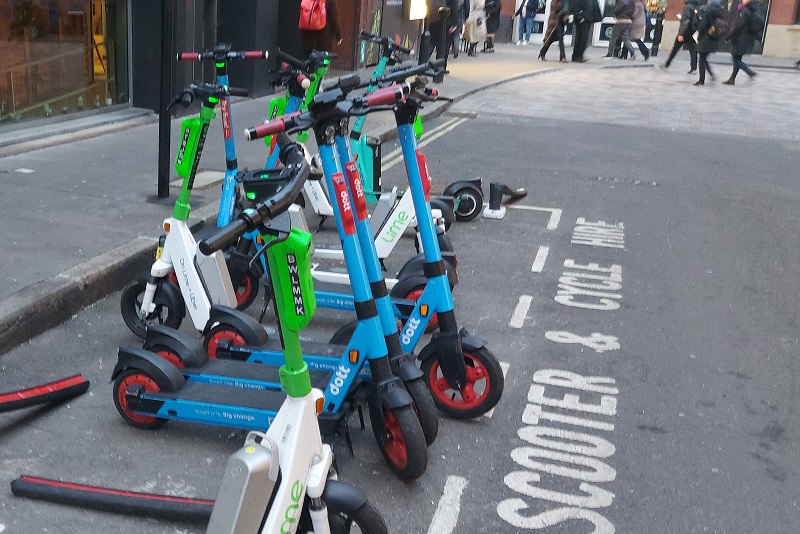
A new report is calling on the UK Government to tackle the ongoing issue of unsafe e-scooter use by requiring better reporting of collisions and increasing opportunities for accurate casualty data to be collected.
The report has been published by the Parliamentary Advisory Council for Transport Safety (PACTS), thanks to funding from The Road Safety Trust.
In the report, PACTS points out that:
- Records from the Government’s e-scooter rental trials, designed to “build robust evidence about the safety” cannot be readily matched with official DfT data; and,
- Casualty data must be collected more rigorously during the trials, recently extended to May 2026, to increase understanding of the hazard and danger of e-scooter use.
This study builds on PACTS’ extensive research into the safety of private e-scooters. PACTS has investigated the extent of under-recording of injury collisions involving e-scooters by analysing data from two months in late 2021.
It looked at 300 casualties recorded by hospitals across the UK, police records and data from the rental trials to identify matches between the different datasets.
The official data for all road traffic casualties, regardless of type of mobility, are based on police records. It has long been recognised, and accepted, that when comparing the official data with the number of people presenting at hospital with an injury from a road traffic collision, there are discrepancies. Recording the number of people injured in road traffic collisions involving e-scooters means the risk of harm to the rider and the risk of harm to other road users can be better understood.
This study found that:
- Fewer than 10% of casualties with any level of injury from a collision involving an e-scooter presenting to emergency departments were recorded in the official data;
- Around a quarter of those most seriously injured in collisions involving e-scooters were recorded by both the police and at hospitals.
In the report, comparing police and hospital e-scooter casualty datasets, PACTS calls on the DfT to:
- Improve the means of recording e-scooter casualties using the rental e-scooter schemes by updating guidance to operators and local authorities so data collection more closely aligns with recording systems the police use; and,
- Increase the opportunities for casualty data to be collected by issuing clear information to the public about the obligations of reporting road traffic collisions to the police, including those involving e-scooters on public roads and public places.
Margaret Winchcomb, PACTS deputy executive director, said: “Transport is an evolving environment. With technological development, as well as incentives from other policy areas, mobility choice is changing. Smaller, zero-emissions vehicles, such as e-scooters are popular, be they illegally ridden private vehicles or regulated rental e-scooters.
“For all, it is essential that the methods for measuring their hazard to riders and danger to other road users are consistent and robust so that safety is adequately understood. The Government should make the most of the extension of the rental trials, until May 2026, to improve and widen the way injuries from e-scooter collisions are recorded.”
Ruth Purdie OBE, chief executive of The Road Safety Trust, said: “There is no doubt that e-scooters are an emerging form of transport, owing to the ongoing trials of rental e-scooters currently taking place across the country.
“With more and more people using these devices, and with future policy still to be decided, it is vitally important that casualty data is as accurate as possible.
“This excellent report shines a light on the steps that are needed to achieve that goal.”
Comment on this story